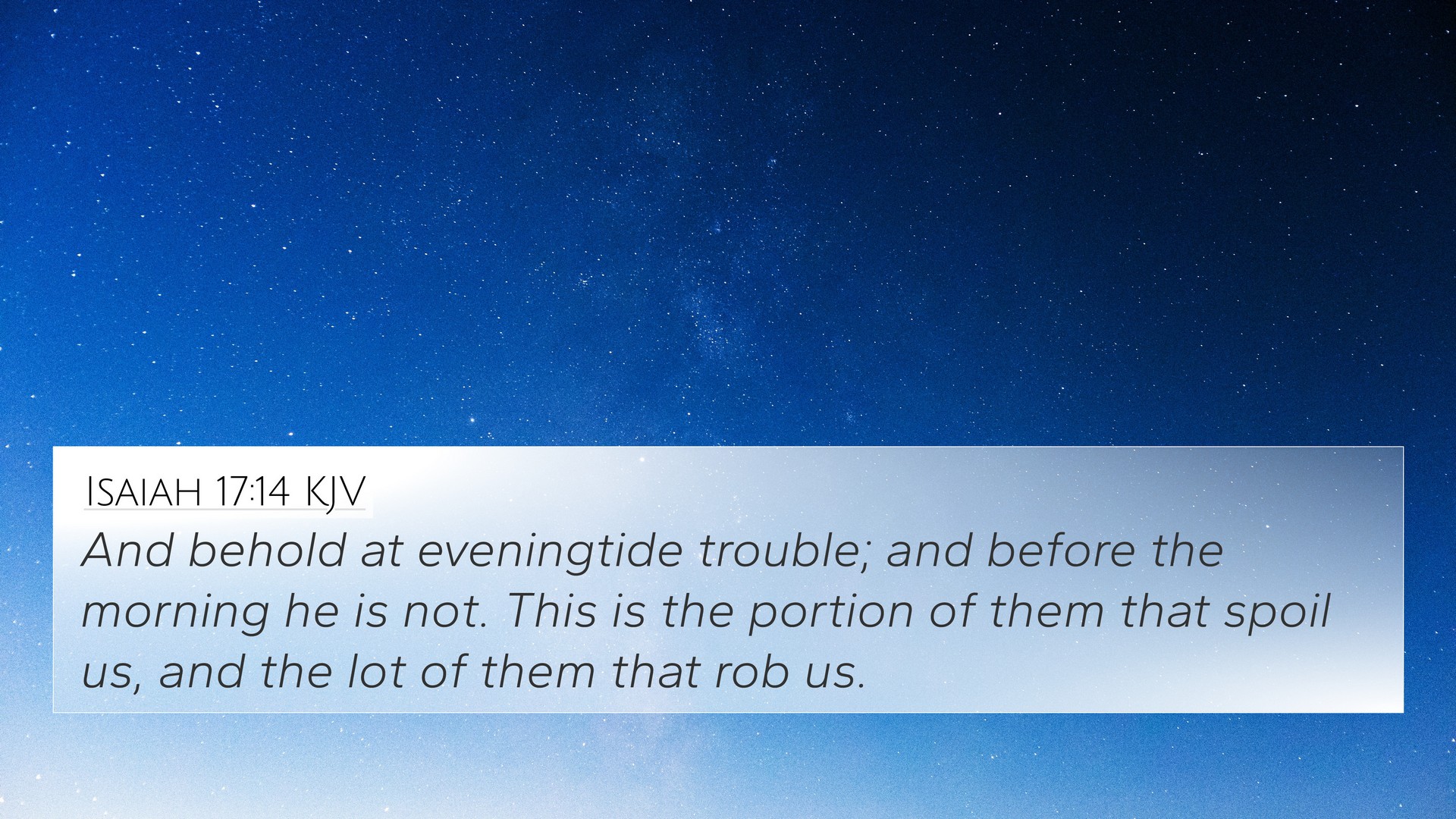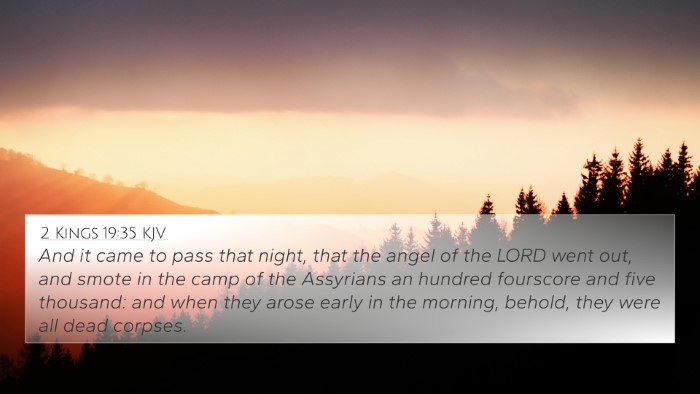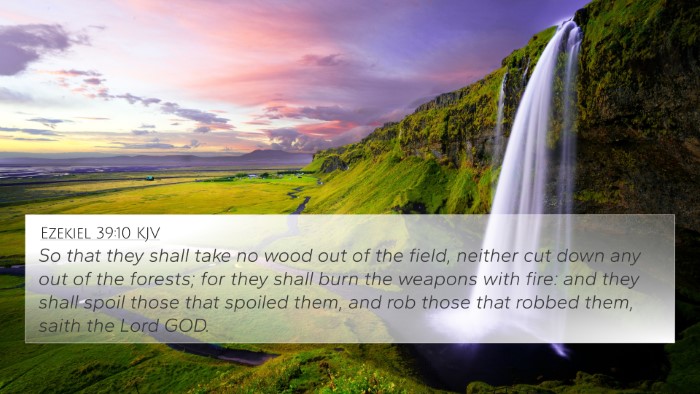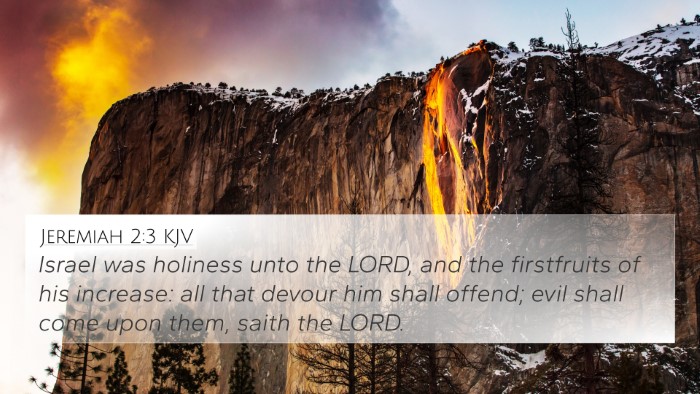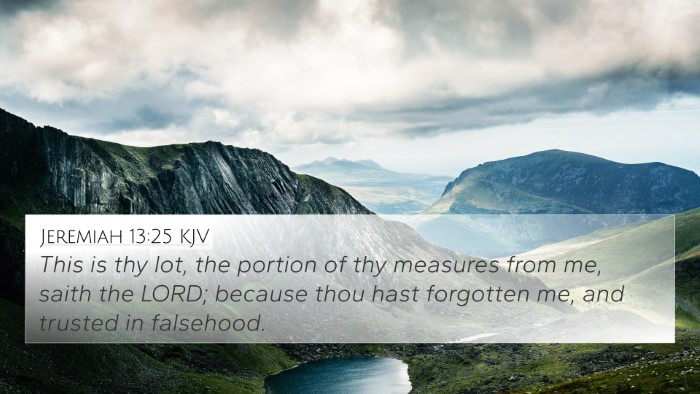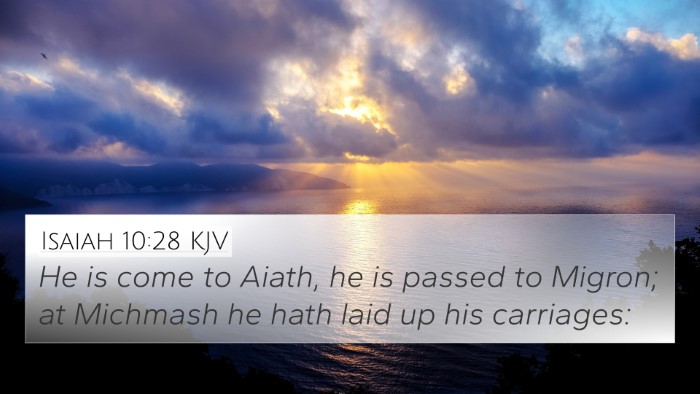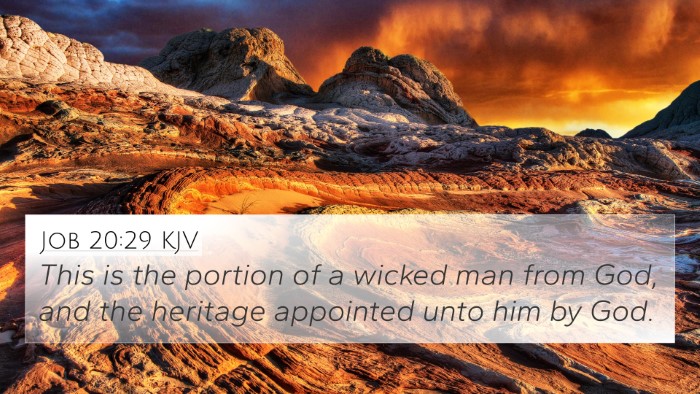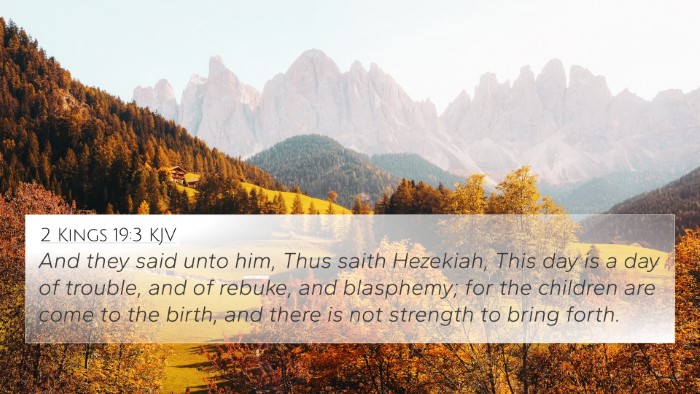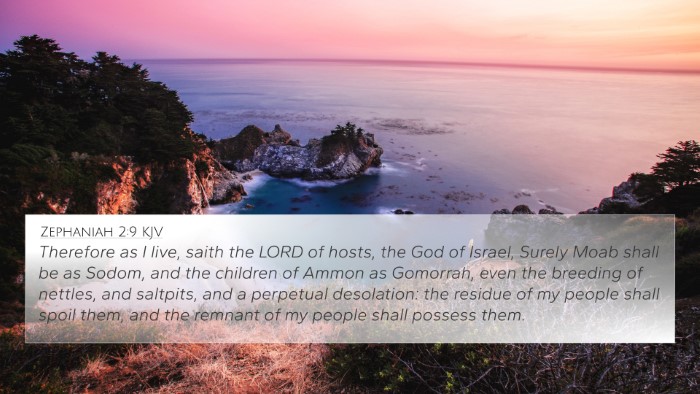Understanding Isaiah 17:14
Isaiah 17:14 states, "Behold, at evening tide trouble; and before the morning he is not. This is the portion of them that spoil us, and the lot of them that rob us." This verse presents a vivid image of imminent disaster and the rapidity with which fortunes can change, serving both as a warning and a conclusion to the prophetic denunciation of the enemies of Israel.
Summary of Interpretations from Commentaries
Matthew Henry's Commentary
According to Matthew Henry, this passage emphasizes the fragility of human safety and the suddenness of divine judgment. The prophet illustrates the fate awaiting the Assyrians, indicating that their power will swiftly dissipate like the evening shadows. Henry underscores the lesson that those who oppress God's people will ultimately face retribution.
Albert Barnes' Notes
Albert Barnes interprets this verse as a direct warning to those who take Israel's safety lightly. He remarks that the "evening tide" signifies impending trouble, suggesting that the mighty will fall before the dawn. Barnes highlights the theological concept that God governs the fates of nations and assures that those who oppress His people will not stand long in their might.
Adam Clarke's Commentary
Adam Clarke points out that the imagery of evening and morning illustrates the fleeting nature of power and prosperity. He notes that the destruction of the foes of Israel is inevitable and imminent, showing God's sovereignty over the nations. Clarke's insights suggest that the fate of oppressors serves as a broader warning to all who defy divine authority.
Cross-References and Thematic Connections
The following passages provide valuable cross-references that relate to Isaiah 17:14, each shedding light on the themes of judgment, divine sovereignty, and the transient nature of power:
- Isaiah 10:12: Highlights God’s judgment upon the Assyrians for their arrogance.
- Isaiah 26:20-21: Encouragement to God's people to find refuge in Him during times of impending judgment.
- Isaiah 24:18-20: Further elucidates the concept of earthly powers collapsing under divine wrath.
- Psalms 37:35-36: Describes the temporary prosperity of the wicked and their ultimate downfall.
- Jeremiah 51:58: Proclaims the destruction of Babylon, akin to the downfall of oppressors in Isaiah's context.
- Ezekiel 30:4: Depicts the fall of Egypt as another example of God’s dominion over nations.
- Habakkuk 2:3-4: Emphasizes that divine decisions unfold in their appointed time, ultimately leading to judgment.
- Proverbs 16:18: Warns that pride precedes destruction, relevant to the fate of the oppressors mentioned.
- Revelation 18:10: Looks at the eventual fall of the great city, symbolizing God's judgment on earthly powers.
- Lamentations 3:22-23: Offers a reminder of God's mercies amid judgment, providing hope for the faithful.
Thematic Analysis
The verse encapsulates significant themes central to the prophetic writings, including:
- Divine Judgment: The assurance that God will bring justice against those who oppress His people.
- Impermanence of Power: The illustrative shift from evening to morning signifies how quickly fortunes can change.
- Hope for the Righteous: A reminder that through calamity, God remains a refuge for those who trust in Him.
Tools for Bible Cross-Referencing
For those studying Isaiah 17:14, various tools for cross-referencing can enhance understanding:
- Bible Concordance: Useful for finding specific verses related to themes and characters.
- Bible Cross-Reference Guide: Helps identify connections between verses across the Scriptural text.
- Bible Reference Resources: Compilations of related verses enhancing thematic studies.
- Bible Chain References: Following a chain of related themes through different Scriptures.
- Cross-Reference Bible Study: Methods that encourage linking Scriptures for a deeper understanding.
Conclusion
Isaiah 17:14 offers profound insights into God's sovereignty and the transient nature of human power, emphasizing that those who oppose Him will ultimately face judgment. The rich tapestry of cross-references serves to strengthen understanding, inviting deeper study and contemplation of the Scriptures.
